For the people who know me personally, it should come as no big surprise that I love Amateur Radio. I got my General Class license two years ago and I’ve got an MMR-40 in the final stages of construction. So it was with some excitement that I recently got my hands on this antique single-sideband transceiver.
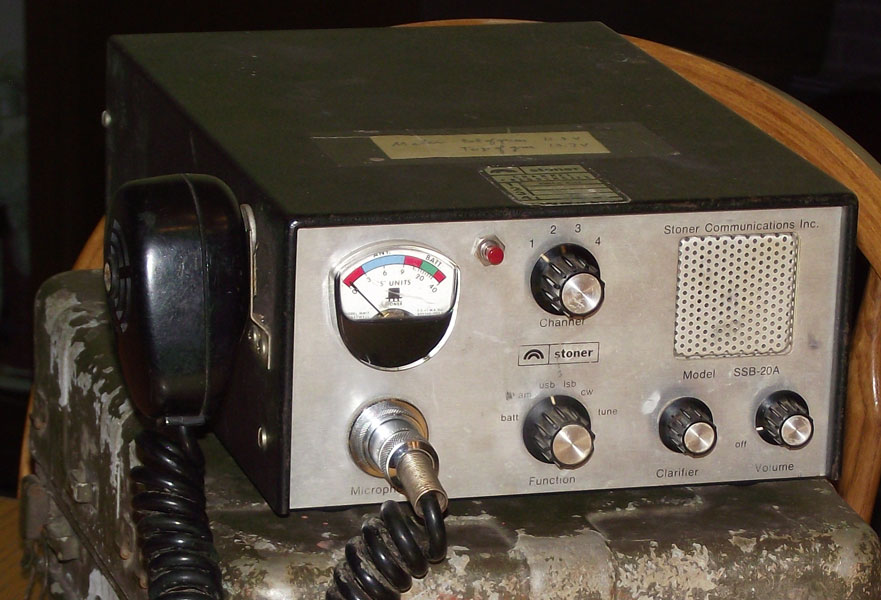
I have been able to find almost no information about this model of radio, except that it was probably build by Donald Stoner in the 1960’s or 1970’s. Instead of a tuning knob, it has quartz crystal oscillators that lock it to a specific frequency. This has the main advantage of being simple and reliable, but the disadvantage of limiting you to whatever frequencies you happen to have crystals for.
When I opened up this radio for the first time, I saw it had only one crystal (it has slots for up to four) and the frequency was just below the 40 meter band. Fortunately, I was able to buy some crystals online, enabling me to operate in the 75/80 and 40 meter bands.
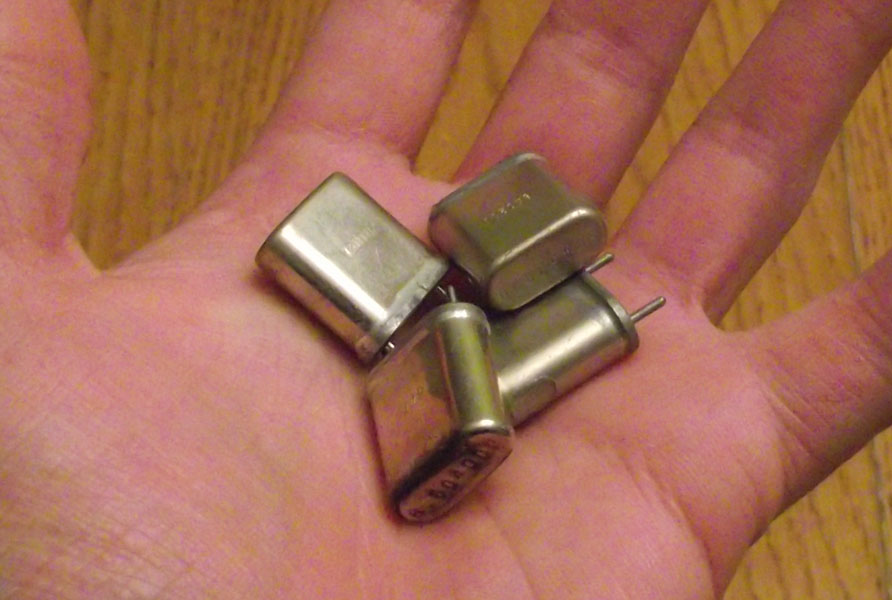
Putting in the new crystals was just a matter of removing the bottom panel on the radio, which reveals the crystal filter (that large rectangular metal piece in the far right corner), the crystal control sockets (one of my new crystals is plugged into the first slot), and the…channel control modules?
This is problematic. As I understand it, each channel needs a pair of these, for receive and transmit, and I only have one set. I would like to use all four crystal slots, but finding more of these channel modules will be difficult to say the least. I doubt my local Radioshack has carried these within my lifetime, if they ever have.
I will probably have to build my own; a prospect I look on with some trepidation. Reverse-engineering these parts doesn’t look too difficult, though there is some danger of damaging them. Making the new parts fit, though, will be a chore.
Well, I suppose it’s all part of the charm of amateur radio. Hams have been building and modifying their own gear since the birth of the hobby, and that’s part of what I love about it.
If anyone has more information about this radio, be it user manuals, schematics, funny anecdotes, pictures, part sources, or anything else, please share.
Also share some of your commas with me because I seem to have run out.

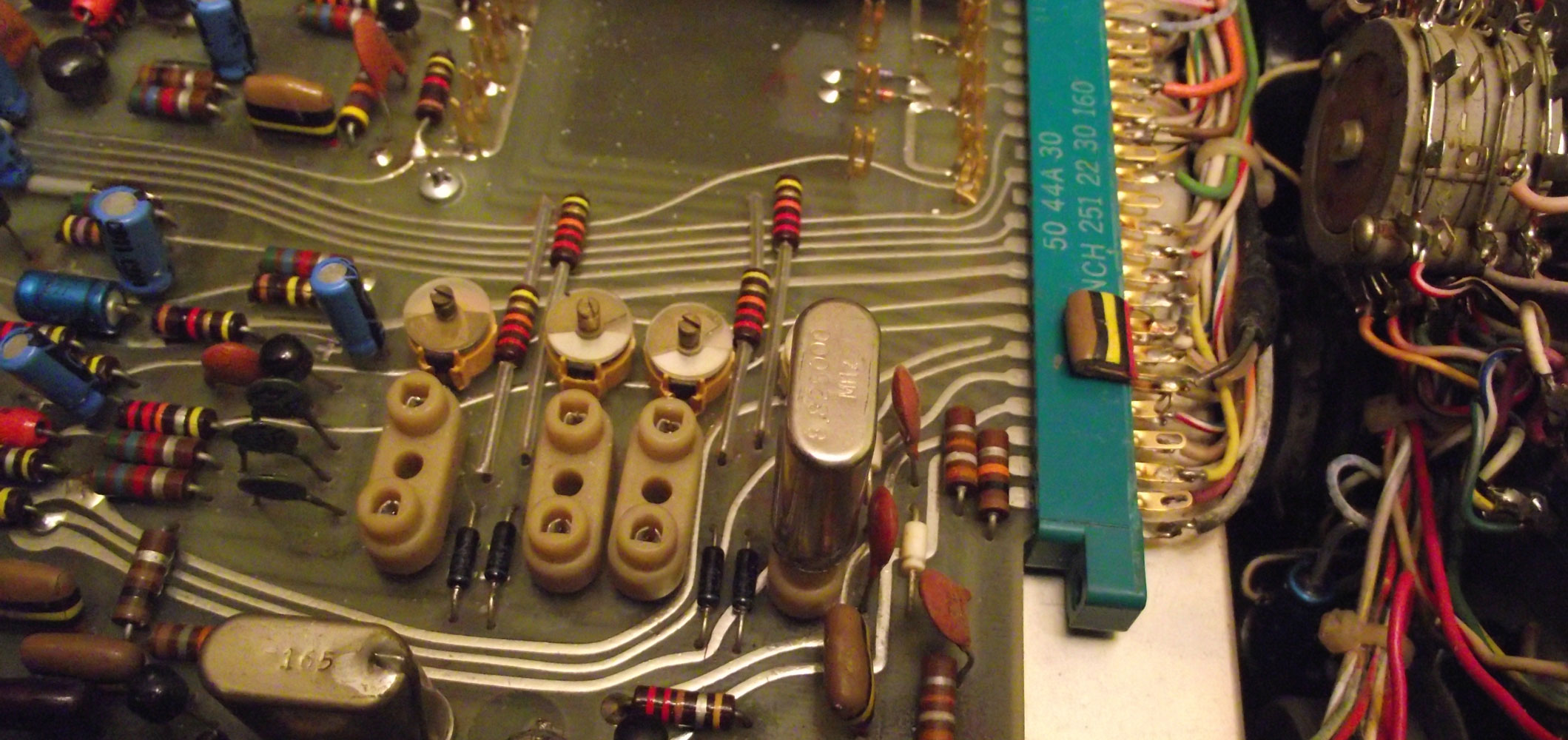
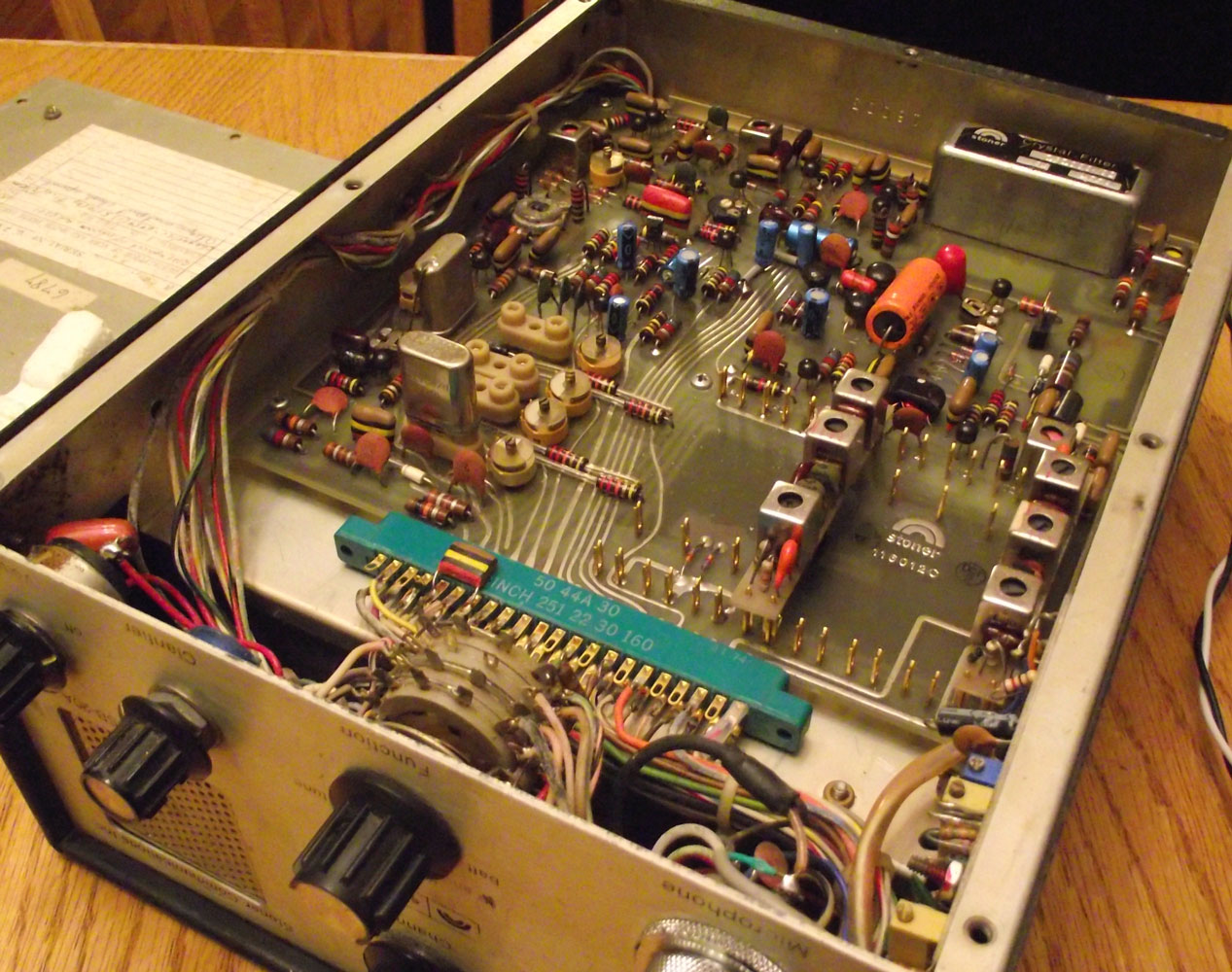
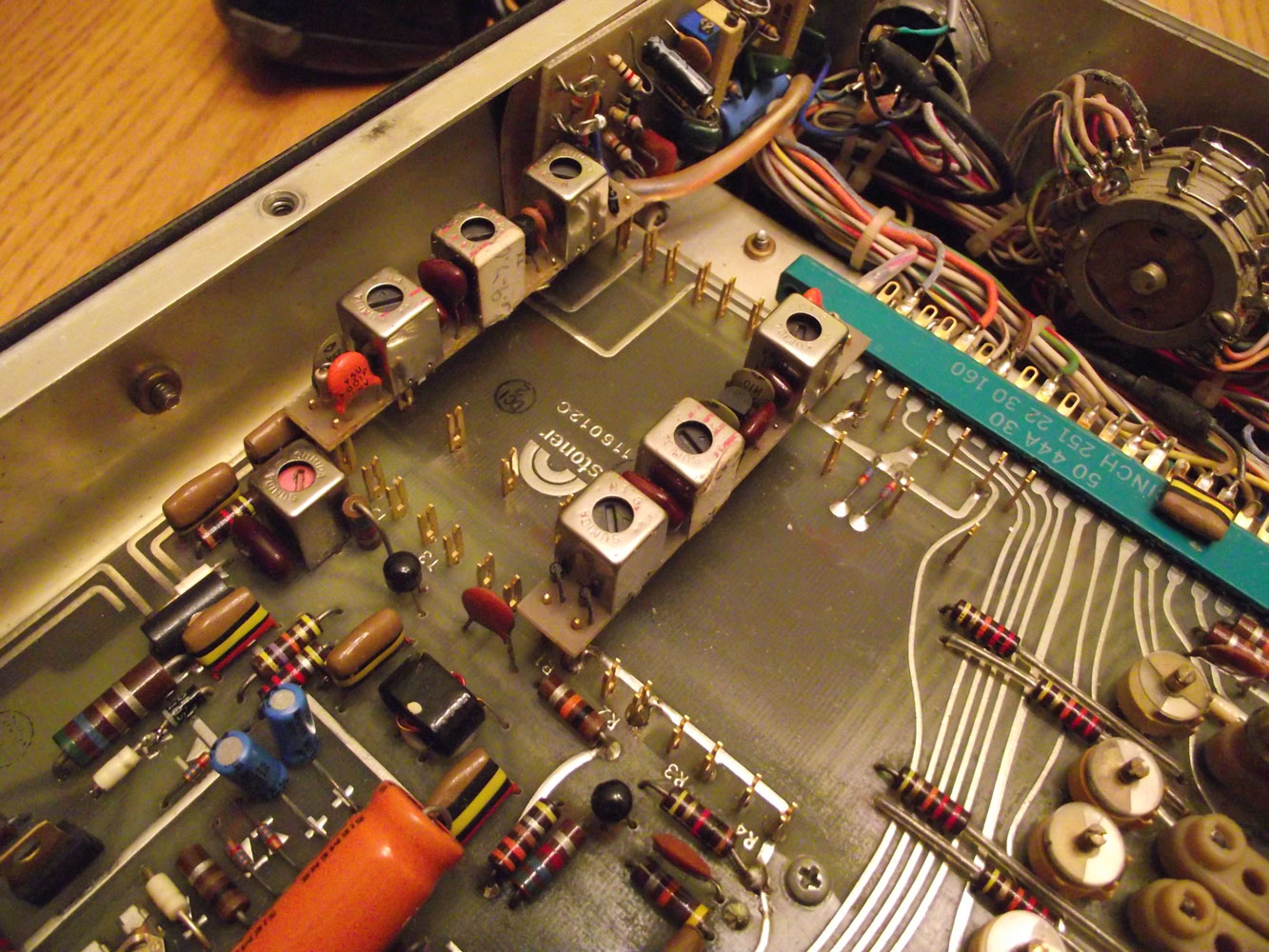
May 14, 2013 at 9:17 am
I have multiple channel modules for the Stoner ssb-40 & 20. I also have (incomplete) schematics and other documentation on this radio. Pls feel free to contact me about them. Ken
May 14, 2013 at 10:10 am
Researching our stock, I find 3 main boards, 3 PA xmt units, and various other boards which I am “ID-ing” using the documentation. I also have a bag of crystals for this radio. Ken
May 14, 2013 at 10:12 am
You can contact me directly at kenhol@sbcglobal.net.
October 13, 2014 at 6:27 pm
I have also two STONER SSB-20MA tranceivers and a technical manual with incomplete schematics. The manual contains theory of operation, specifications, installation, operation, maintenance and repair, part list, but not complete schematics; only the schematics of receive channel module, transmit channel module, transmit / receive channel module. According to the manual FET TRANSİSTOR MPF 103 (Q112) should be changed with a MPF 106 (2N5484). 1kohm resistance and 10microFarad 16v el.condenser must be soldered in parallel between the source of this FET and ground. This modification makes an increase in audio fidelity.
I need complete schematics. with my best regards.
Tanverdo, TA2AG
October 14, 2014 at 11:03 am
Thanks, Tanverdo. You must have the same technical manual as me, because mine has that tip about the FET too. I was able to get some separate schematics too, though. Try these: https://dl.dropboxusercontent.com/u/66378774/stoner_schematics.zip
January 15, 2015 at 8:38 am
Dear Aridchef,
Thank you very much for the address of stoner ssb-20a schematics. I have downloaded and archieved.
I have two STONER SSB-20MA tranceivers I want to modify one of them by vxo’rize the x-tal osc. for 80m. and 40m. bands.
In case of the other one, I want to try to add a vfo (5100 – 5500 kHz) for 80m band and a double balanced premixer with this vfo and the x-tal osc. for 40m band. (freq. = xtal freq. + 1650kHz). Problem is to fit these into the front panel. A compact digital read-out convenient for 1650 kHz. if freq. (http://www.aade.com/dfd1Hallicrafters.htm) can be the problem solver.
I think A 12V, 3A noiseless switching power supply can be fit in the transc. case.
January 15, 2015 at 9:38 am
Wow, that sounds like a very interesting project. Good luck!
August 28, 2015 at 5:58 am
Some have the interconection betwen boards and front ?
August 31, 2015 at 1:54 pm
I investigate the interconections. mail me oa4asd@gmail.com, check my blog: http://insectomuerto.blogspot.com
October 20, 2015 at 2:25 pm
I have problems to adapt the power connection, and the mic connection. someone has it?
September 7, 2016 at 4:29 pm
I was a missionary radio tech ’93-’96 in the Philippines and we used these for remote village sites. I still have several crystals for the freqs we used. I also have an alarm circuit we used for remote missionaries to trigger an alarm by pushing a button on their radio. It would trigger an alarm at my house at our center and I could get their msg. Once this was used when one of our translators was kidnapped. Lots of memories.